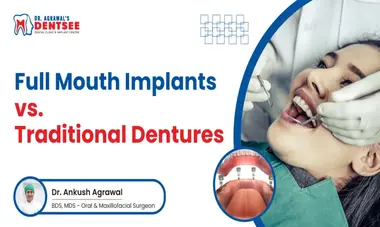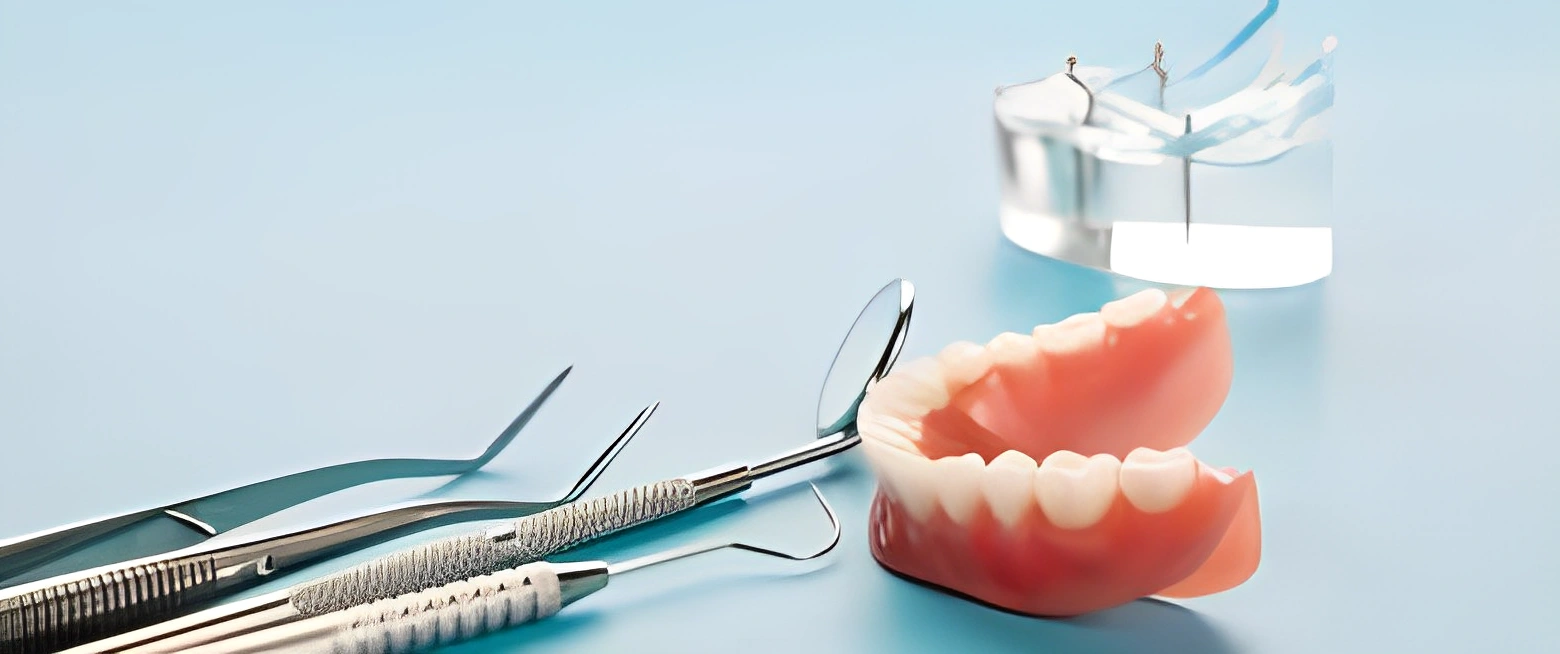Full Mouth Implants vs. Traditional Dentures

Full Mouth Implants vs. Traditional Dentures
In the realm of dental restoration, two primary options stand out: full mouth implants and traditional dentures. Each has its own set of advantages and considerations, making the choice between the two a crucial decision for anyone seeking to restore their dental health and smile.
In this Article, we’ll explore the characteristics of both full mouth implants and traditional dentures, helping you make an informed decision about which option is best suited to your individual needs. Cosmetic Dentistry in Wakad, led by Dr. Ankush Agrawal, offers a range of Transformative Dental Treatments tailored to enhance both the appearance and function of your smile. One notable option is full mouth implant restoration, which presents numerous benefits.
By replacing missing or damaged teeth with dental implants, patients can regain confidence in their smile and enjoy improved oral health. These implants provide stability, durability, and a natural look and feel, allowing individuals to comfortably eat, speak, and smile with ease.
Additionally, full mouth implants help preserve facial structure and prevent bone loss, promoting long-term dental wellness. With Dr. Ankush Agrawal’s expertise and personalized care, patients in Wakad can achieve a beautiful, functional smile that enhances their overall quality of life.

Full Mouth Implants:
Full mouth implants, also known as implant-supported dentures or full arch implants, involve the surgical placement of dental implants into the jawbone to support a permanent or removable prosthetic arch of teeth.
This Method Offers Several Benefits:
- Permanent Solution: Full mouth implants provide a permanent solution for replacing missing teeth. Once the implants integrate with the jawbone, they offer stability and functionality similar to natural teeth.
- Improved Oral Health: Implants help preserve bone density in the jaw, preventing deterioration that commonly occurs with tooth loss. This can maintain the structure of the face and prevent the sagging appearance often associated with missing teeth.
- Enhanced Comfort and Functionality: Since implants are anchored securely in the jaw, they offer superior stability compared to traditional dentures. This stability allows for improved chewing efficiency and speech clarity, as the prosthetic teeth do not shift or move during use.
- Natural Appearance: Full mouth implants are custom-made to resemble natural teeth closely. The prosthetic teeth are designed to match the shape, size, and color of the patient’s natural teeth, providing a seamless and aesthetically pleasing smile.
However, it’s essential to Consider Some Factors Before Opting for Full mouth implants:
- Cost: Full mouth implants tend to be more expensive than traditional dentures due to the surgical procedure involved and the materials used.
- Surgical Procedure: Implant surgery requires a healing period during which the implants fuse with the jawbone. This process can take several months, and some patients may require additional procedures such as bone grafting to ensure a successful outcome.
- Not Suitable for Everyone: Some individuals may not be suitable candidates for implant surgery due to insufficient bone density or underlying health conditions.
Traditional Dentures:
Traditional dentures are removable prosthetic devices designed to replace missing teeth. They consist of artificial teeth attached to a gum-colored base made of acrylic or a combination of acrylic and metal.

Here are some key aspects of traditional dentures:
- Affordability: Traditional dentures are generally more affordable than full mouth implants, making them a preferred option for individuals on a tight budget.
- Non-Invasive: Unlike implant surgery, getting traditional dentures does not require any surgical procedures. The process involves taking impressions of the mouth and fitting the dentures accordingly.
- Adaptability: Dentures can be easily adjusted or replaced as needed, providing flexibility in case of changes in the mouth’s structure or wear and tear of the prosthetic.
- Immediate Solution: Unlike implants that require a healing period, traditional dentures can be fabricated and fitted relatively quickly, allowing for immediate restoration of the smile.
However, traditional dentures also have some drawbacks:
- Less Stability: Traditional dentures rely on suction or adhesives to stay in place, which may not provide the same level of stability as implants. This can lead to discomfort, difficulty speaking, and eating.
- Bone Resorption: Without the stimulation provided by natural tooth roots or implants, the jawbone beneath the dentures may deteriorate over time, leading to changes in facial structure and fit of the dentures.
- Regular Maintenance: Dentures require regular cleaning and maintenance to prevent plaque buildup, staining, and odors. They may also need to be replaced every few years as they wear down or become ill-fitting.
Conclusion
the choice between full mouth implants and traditional dentures depends on various factors, including budget,Oral Health, lifestyle, and personal preference. While full mouth implants offer a permanent and natural-looking solution with superior stability and functionality, they come with a higher cost and require surgical intervention.
On the other hand, traditional dentures are more affordable and offer a non-invasive, adaptable option, but they may lack the stability and longevity of implants. Consulting with a qualified dentist or prosthodontist is essential to evaluate your specific needs and determine the best option for your dental health and overall well-being.
